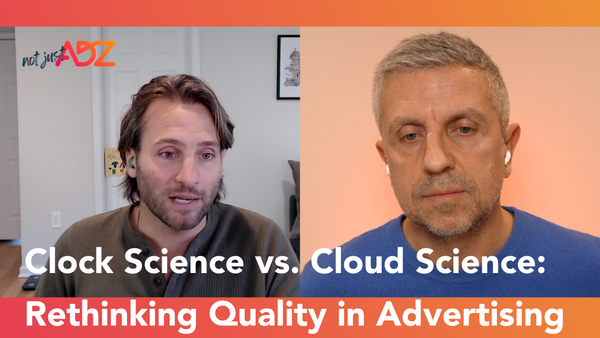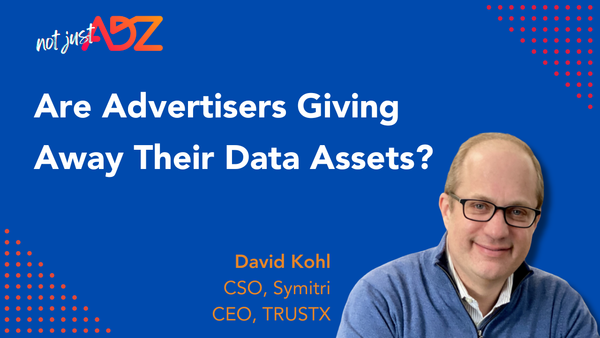Ad Blockers & Our Sins

I have been hearing and discussing with colleagues the mounting issue of ad blockers at recent industry events and I would like to take the time for some additional thoughts on the topic.
Let’s imagine this situation: I'm exiting a shoe shop after having purchased a new pair of boots. As I leave the premises, a shop assistant starts following me wherever I go.
“Would you like to buy this pair of boots, sir?” Puzzled, I am wondering why she is asking me to buy a pair of boots identical to the ones I just bought. As I move around the city streets, the shop assistant becomes more and more pushy and annoying. “Would you like to buy this pair of shoes, sir?”… “have you seen these other colours, sir?... “We sell boots sir”…
One day, one week, one month. The shop assistant pops up everywhere: at the coffee shop, the art gallery, the football stadium, the barber shop.
Now, would you blame me for trying to remove this nuisance from my every day activities, as quickly as possible?
Welcome to the world of ad blockers.
And talking about the world, I hear some international publishers reach the 30% blocked ads mark.
Ad blockers are generally in breach of the agreement between users and content providers/app developers, which is commonly accepted by users as they start consuming some content or interacting with an app.
But this should not excuse the digital publishing industry for being in denial: ad blockers are just one of the outcomes of bad practices and badly implemented advertising, often (but not only) constituted by bad retargeting and dubious 3rd party data.
We are all guilty of poor practice:
- Advertisers and media agencies, for not choosing technology partners who value consumers’ experience of their brand (through advertising);
- “Short termist” ad technology companies, for trying to make as much money as possible, as fast as possible, at the expense of the user’s experience and then mutating, jumping from bandwagon to bandwagon;
- Publishers, for the biggest sin of all: giving away our users, selling our soul, compromising the relationship with our audiences by running any ads to make money.
Ad Technology is not the evil in this picture but the use we make of it: we need more best practices, better data and sensible implementation.
Are we surprised if users are installing ad blockers after being bombarded with high frequency, irrelevant ads (see lack of conversion data in the implementation of retargeting or the use of bad 3rd party data) rather in the manner of geese being force-fed food to produce foie gras?
Let’s fight ad blockers by stopping to blame users and rethinking the way we leverage ad technology.
Originally published on LinkedIn on February 12, 2015.





